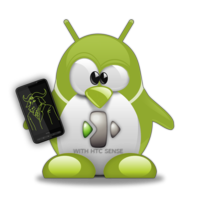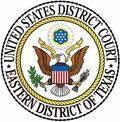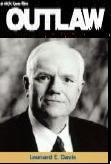
So it should have been no surprise when a jury there returned a $5 million award yesterday in the first of two suits (this one against Google) brought by Bedrock Computer Technologies LLC against a collection of Linux server users.
Let's take a look at it.
Some reporters, including the folks from the BBC, were convinced by Florian Mueller of FOSSpatents that the decision is highly significant and puts all of Linux into doubt.
I disagree.
The government made itself pretty clear on this issue with its CPTN decision the other day. The continuing efforts of the Open Invention Network to defuse Linux patent claims have won support on both sides of the Atlantic.
Still, I found this interesting enough to do a little digging.

The patent was first given in 1999 to Richard Nemes of Pace University, who works in what's now called the Ivan Seidenberg School. (Seidenberg is best known for building Verizon.) Attorney David Garrod obtained the patent, then created a company called Bedrock Computer Technologies LLC specifically as a vehicle for lawsuits based on the patent.
It's ironic, and an indication of how small the patent law universe is, that Garrod is a friend of FSF lawyer David Ravicher and actually helped him with PubPat, which fights undeserved patents and unfair patent policy. But it's also clear, from looking at The Prior Art, a patent blog, that the company was created and sited in Tyler specifically to pursue this litigation . In addition to Google, Yahoo, and the other giants, the suit included two small Texas companies to assure a hearing in Tyler.
In other words this was Bedrock's high water mark. There are serious questions about how broad the patent is – it would be violated by any operating system.

Davis recently overturned a big jury award against Apple, saying a company founded by Yale Professor (Unabomber victim, fiction author) David Gelernter had valid patents, but that the Macintosh hadn't violated them. Davis might be tempted to do the same thing here.
A jury award, in other words, is just the first step in a long process, and a patent holder can lose at many different points. Given the government's clear policy favoring open source, and the breadth of the patent's claims, my guess is that will happen somewhere on this case.
But a lot of billable hours are going to go over the dam in the meantime, thanks once again to Justice Roberts. Software patents were created by courts. Acting as though they're legislative acts was a cop-out that will cost innovators billions.










instant payday loans
Dana Blankenhorn: Texas Patent Jury Defies Government Consensus on Linux
true protein discount codetrue nutrition discount code
Dana Blankenhorn: Texas Patent Jury Defies Government Consensus on Linux
It is no wonder they support patent holders. Almost all courts in all countries are pro patents
It is no wonder they support patent holders. Almost all courts in all countries are pro patents